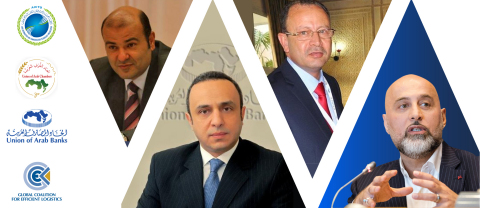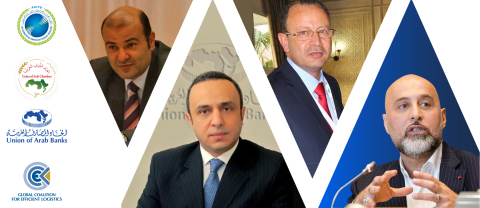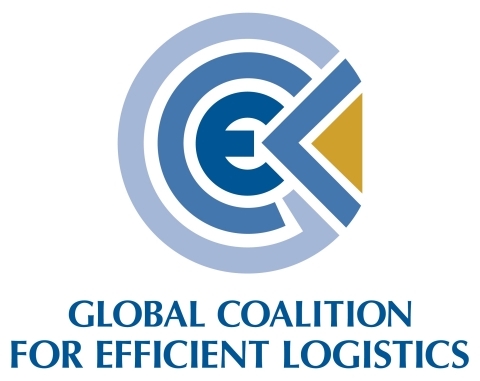GENEVA--(BUSINESS WIRE)--The Union of Arab Banks (UAB), Union of Arab Chambers (UAC), and Arab Information and Communication Technology Organization (AICTO), operating under the Arab League umbrella, joined forces with the Global Coalition for Efficient Logistics (GCEL / Coalition) to deploy the Digital Economy Platform (DEP) empowering the Digital Economy between the Arab Nations and their trade partners.
The DEP delivers new digital tools that increase efficiency and transparency to de-risk doing business, reduce excess trade costs, enlarge business financing and expand market reach. The DEP innovation will increase the Arab goods and services trade by USD 1.1 trillion and generate more than 20 million jobs by 2031.
The three Unions and GCEL announced the MOU execution during the UAB-IMF High-Level Virtual Conference – 'Financing Growth by Empowering the Digital Economy.’ Conference attendees included officials from 10 Arab Central Banks and the Arab League. Dr. Mahmoud Mohieldin, International Monetary Fund Executive Director, delivered a keynote address.
During the conference, Mr. Wissam Fattouh, UAB Secretary-General, called for the Arab region's Digital Economy transformation to diversify its economies and achieve sustained economic growth. He noted, “The DEP integrates Arab banks to the fragmented B2B marketplace and provides a new global USD 7.5 trillion market opportunity for the banking industry by 2031. The DEP unleashes a new wave of financing for our SMEs, which are the cornerstone of our economies."
The conference participants stressed the urgency to find practical solutions for the challenges facing the Arab world, including high youth unemployment, increased poverty, and low economic growth.
Dr. Khaled Hanafy, UAC Secretary-General, stated "The Coalition has developed a comprehensive digital implementation program to increase the Arab economies' GDP by 36% and create more than 20 million new jobs by 2031. Each country will be presented with a proposal on how to transit to a Digital Economy and create high paying services jobs meeting the ambitions of our youth."
Eng. Mohamed Ben Amor, AICTO Secretary-General, emphasized, “The Digital Economy must be based on a comprehensive solution and not a fragmented one. The Digital Economy must provide seamlessly integrated commerce, finance, insurance, and logistics/operations verticals, which represent the main pillars of the B2B marketplace, the mother of all industries.” He added, “The Digital Economy must be delivered by the world’s top technology firms free of cost to the end-user, yet sustained by a unique business model.” He further stated that the Digital Economy must offset geopolitical, privacy, and data protection concerns.
Captain Salloum, Coalition Chairman, remarked, “Despite the power of the finance, insurance, and e-commerce industries, only 5% of the B2B marketplace has been digitally served. The big question is why? The answer can be summarized in two main reasons: (1) The industry silo approach is not working, and (2) the B2B marketplace requires transformation from analog to a digital ecosystem.”
To achieve B2B marketplace transformation, Captain Salloum enumerated, “We must (1) obtain global policy adoption towards implementing the transformation, (2) define the Digital Economy tools through validation from users at the ground level, (3) obtain the technology industry’s commitment to deploy the required solution globally, (4) secure global consensus of the desired solution through national deployment agreements, and (5) present a unique business model to sustain the required solution coinciding with its scope and magnitude. I am glad to announce that the Coalition has achieved all these requirements supported by 15 years of research and development.”
The UAB and GCEL also announced their joint establishment of a USD 500 million special purpose investment vehicle to trigger the DEP deployment through an 18-month program involving digital "Benchmark Trade Lanes" between the Arab region and their trade partners.




